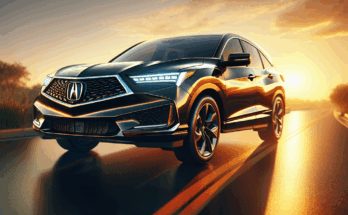Introduction to Safety on the Road
When it comes to purchasing a new vehicle, there are numerous factors to consider, including performance, fuel efficiency, and overall cost. However, one of the most critical aspects that often tops the list of priorities for many potential car buyers is safety. The importance of safety features and crash test ratings cannot be overstated, as they directly impact the well-being of the driver and passengers in the event of an accident. In this article, we’ll delve into the world of vehicle safety, focusing on cars that have achieved the best crash test ratings. Whether you’re in the market for a sleek sedan, a versatile SUV, or a robust truck, understanding which vehicles have excelled in safety tests can guide your decision and provide peace of mind on the road.
Understanding Crash Test Ratings
Before diving into the list of cars with outstanding safety records, it’s essential to understand how crash test ratings are determined. Organizations such as the National Highway Traffic Safety Administration (NHTSA) and the Insurance Institute for Highway Safety (IIHS) conduct rigorous tests to assess a vehicle’s ability to protect its occupants in various crash scenarios. These tests include frontal crashes, side impacts, rollovers, and more recently, small overlap frontal crashes, which simulate the common situation of a vehicle colliding with a fixed object or another vehicle on the front corner. Vehicles are rated on a scale, with the highest ratings indicating the best performance in these tests. The NHTSA uses a 5-star rating system, while the IIHS assigns ratings from Good (the highest) to Poor. Cars that achieve perfect or near-perfect scores in these evaluations are considered to offer the highest level of safety.
Cars with the Best Crash Test Ratings
Several models across different categories have consistently demonstrated superior safety through these tests. For instance, vehicles like the Toyota Avalon and the Honda Accord have shown remarkable resilience in various crash scenarios, earning them top marks from both the NHTSA and the IIHS. Similarly, SUVs such as the Subaru Ascent and the Hyundai Palisade have also stood out for their excellent safety features, including advanced airbag systems and robust structural integrity. These vehicles not only provide a safe environment for their occupants but also often come equipped with advanced safety technologies like lane departure warning systems, blind-spot monitoring, and automatic emergency braking, further reducing the risk of accidents.
Advanced Safety Features
Beyond the structural integrity and passive safety features of a vehicle, many modern cars are now equipped with a suite of advanced safety features designed to prevent accidents from occurring in the first place. These technologies can significantly enhance the safety of both the vehicle’s occupants and other road users. Features such as adaptive cruise control, which adjusts the vehicle’s speed to maintain a safe distance from the vehicle ahead, and lane-keeping assist, which gently corrects the vehicle’s path to stay within lane markings, are becoming increasingly common. Moreover, the integration of high-resolution cameras and radar sensors enables functions like automatic emergency steering and pedestrian detection, which can autonomously apply the brakes or steer the vehicle to avoid a collision. The prevalence of these advanced safety features in vehicles with the best crash test ratings underscores the evolving nature of automotive safety, moving beyond mere crashworthiness to encompass proactive accident prevention.
The Future of Vehicle Safety
As technology continues to advance, the future of vehicle safety looks promising. Innovations such as vehicle-to-everything (V2X) communication, which enables vehicles to exchange information with other vehicles, infrastructure, and even pedestrians’ devices, promise to further reduce accidents. The development of autonomous vehicles also holds significant potential for enhancing road safety, as these vehicles can perceive their environment in real-time and react more quickly and accurately than human drivers in many situations. While these advancements are still in the developmental stages, they represent a significant step towards the ultimate goal of zero traffic fatalities.
Conclusion
In conclusion, when considering the purchase of a new vehicle, prioritizing safety is paramount. Cars with the best crash test ratings offer not only peace of mind but also a tangible reduction in the risk of injury or fatality in the event of an accident. By understanding how crash test ratings are determined and familiarizing oneself with the advanced safety features available in modern vehicles, consumers can make informed decisions that prioritize their safety and the safety of their loved ones. As the automotive industry continues to evolve, with a focus on proactive safety measures and innovative technologies, the future of road safety looks brighter than ever.
Frequently Asked Questions
- Q: What organizations conduct crash tests and ratings?
A: Organizations like the National Highway Traffic Safety Administration (NHTSA) and the Insurance Institute for Highway Safety (IIHS) conduct these tests. - Q: How are crash test ratings determined?
A: Vehicles are tested in various crash scenarios, including frontal, side, and rollover crashes, and are rated based on their performance in these tests. - Q: What are some examples of cars with the best crash test ratings?
A: Vehicles such as the Toyota Avalon, Honda Accord, Subaru Ascent, and Hyundai Palisade have shown excellent safety performance. - Q: What advanced safety features are available in modern cars?
A: Features include adaptive cruise control, lane-keeping assist, automatic emergency braking, and pedestrian detection. - Q: How is the future of vehicle safety evolving?
A: The future involves innovations like vehicle-to-everything communication and the development of autonomous vehicles, which aim to significantly enhance road safety.



